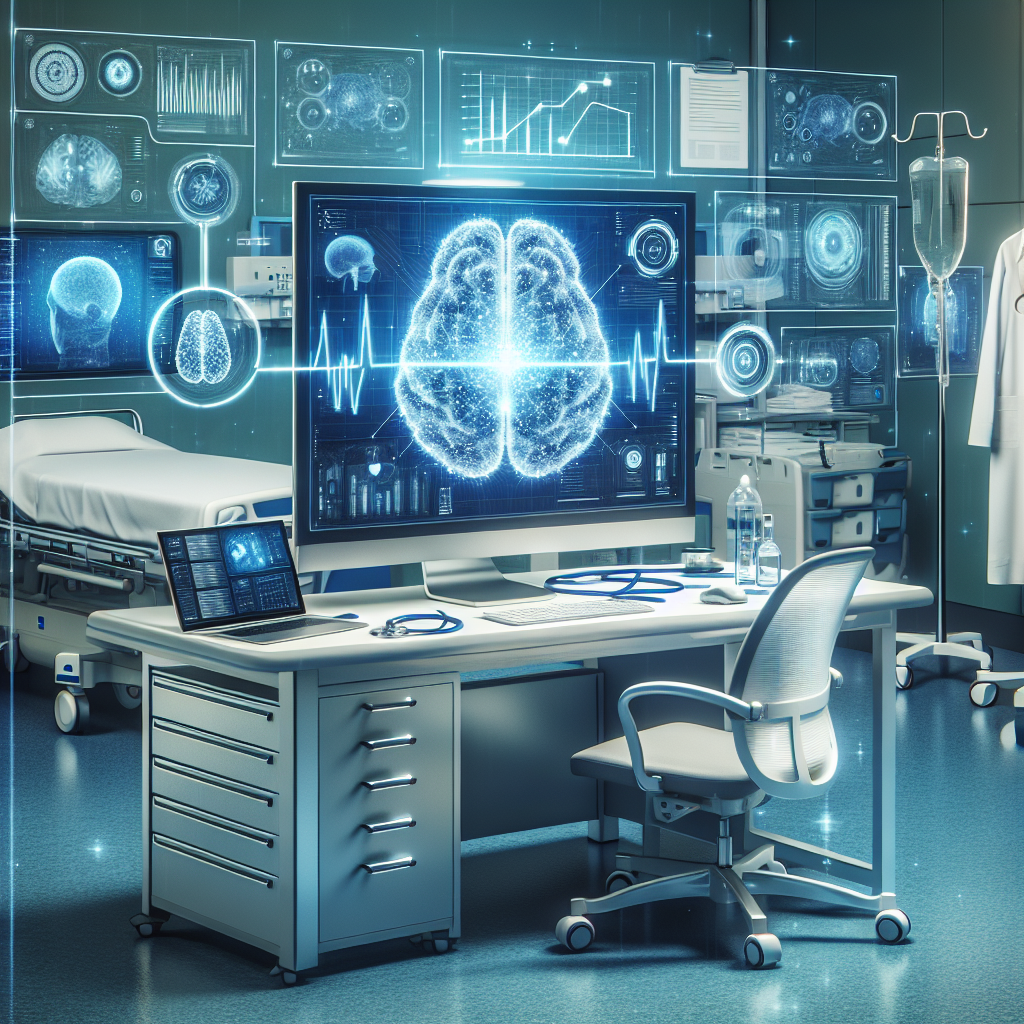In recent years, Artificial Intelligence (AI) has been making significant strides in various industries, including healthcare. One area where AI has shown great promise is in healthcare diagnostics. AI consulting in healthcare diagnostics involves using machine learning algorithms to analyze medical data and provide accurate and timely diagnoses of various medical conditions. This article will explore the benefits of implementing AI consulting in healthcare diagnostics and address some frequently asked questions about this emerging technology.
Benefits of Implementing AI Consulting in Healthcare Diagnostics
1. Improved Accuracy: One of the key benefits of using AI in healthcare diagnostics is the ability to improve the accuracy of diagnoses. AI algorithms can analyze large amounts of medical data quickly and accurately, leading to more precise diagnoses than traditional methods.
2. Faster Diagnoses: AI consulting in healthcare diagnostics can help speed up the diagnostic process. By automating the analysis of medical data, AI algorithms can provide healthcare professionals with timely information to make informed decisions about patient care.
3. Personalized Treatment Plans: AI consulting in healthcare diagnostics can also help healthcare professionals develop personalized treatment plans for patients. By analyzing individual patient data, AI algorithms can identify the most effective treatment options based on the patient’s unique characteristics and medical history.
4. Cost-Effective: Implementing AI consulting in healthcare diagnostics can also help reduce healthcare costs. By streamlining the diagnostic process and improving the accuracy of diagnoses, healthcare providers can avoid unnecessary tests and treatments, leading to cost savings for both patients and healthcare organizations.
5. Enhanced Patient Care: AI consulting in healthcare diagnostics can ultimately lead to better patient outcomes. By providing healthcare professionals with accurate and timely information, AI algorithms can help improve the quality of care patients receive, leading to better health outcomes.
FAQs about AI Consulting in Healthcare Diagnostics
1. What is AI consulting in healthcare diagnostics?
AI consulting in healthcare diagnostics involves using machine learning algorithms to analyze medical data and provide accurate and timely diagnoses of various medical conditions. By leveraging AI technology, healthcare providers can improve the accuracy of diagnoses, speed up the diagnostic process, and develop personalized treatment plans for patients.
2. How does AI consulting in healthcare diagnostics work?
AI consulting in healthcare diagnostics works by using machine learning algorithms to analyze large amounts of medical data, such as patient records, lab results, and imaging studies. These algorithms can identify patterns and trends in the data that may be indicative of specific medical conditions, allowing healthcare professionals to make informed decisions about patient care.
3. What are the benefits of implementing AI consulting in healthcare diagnostics?
Some of the key benefits of implementing AI consulting in healthcare diagnostics include improved accuracy of diagnoses, faster diagnostic process, personalized treatment plans, cost savings, and enhanced patient care. By leveraging AI technology, healthcare providers can provide better care to patients and improve health outcomes.
4. Is AI consulting in healthcare diagnostics safe?
AI consulting in healthcare diagnostics is generally considered safe when implemented correctly. However, it is important for healthcare organizations to ensure that the AI algorithms used in diagnostics are properly trained and validated to ensure accurate and reliable results. Additionally, healthcare professionals should always review and verify the recommendations provided by AI algorithms to ensure patient safety.
5. How can healthcare organizations implement AI consulting in healthcare diagnostics?
To implement AI consulting in healthcare diagnostics, healthcare organizations should first assess their needs and goals for using AI technology. They should then identify suitable AI consulting providers with expertise in healthcare diagnostics and develop a plan for integrating AI algorithms into their existing systems. It is also important for healthcare organizations to train their staff on how to use AI technology effectively and ensure compliance with data privacy and security regulations.
In conclusion, implementing AI consulting in healthcare diagnostics can bring significant benefits to healthcare providers and patients alike. By leveraging the power of AI technology, healthcare organizations can improve the accuracy of diagnoses, speed up the diagnostic process, develop personalized treatment plans, reduce costs, and enhance patient care. As AI technology continues to advance, we can expect to see even more innovative applications of AI consulting in healthcare diagnostics in the future.

